By Bob Fish
When coffee prices go low, it feels like a win for the retailer and consumer. How could it not be? We get the same luxurious product for less, and because of that, we might even sell, or consume, more. But this couldn’t be farther from the truth.
To understand this, you have to understand that the gate price you pay a farmer for a commodity like coffee impacts the way they can farm that coffee.
‘Gate Price’ by the way, is simply the price the farmer gets, not the FOB price, or the landed price, or the price to roast the coffee. I am talking about what the Farmer receives as their coffee parchment leaves their farm to go to the Dry Mill.
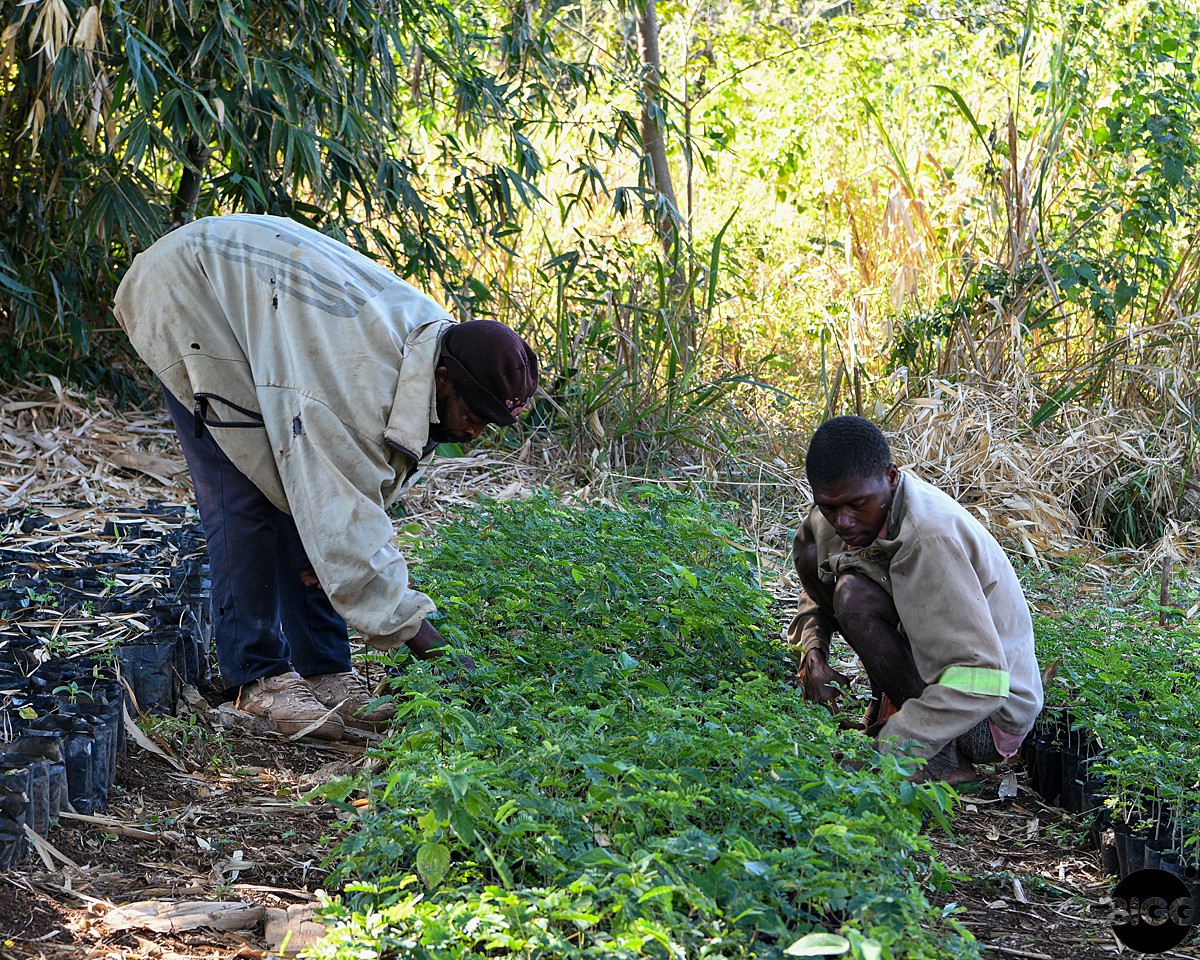
Coffee farmers in Gorongosa, Mozambique, tending their seedlings in the nursery.
365 Days
All of this is pretty simple.
Farming coffee is a 365 day a year job. It requires about three people per hectare (2.5 Acres).
There is pruning, stumping, and regeneration, and there are four organic fertilizations. There is the maintenance of the forest canopy to keep it at about 50% indigenous shade. There is the manual removal of weeds. There is the natural management of pests, blight, and infestations.
There is the management, supply, and redirection of water. There is the work of germinating seeds and growing new coffee seedlings. There is the natural management of soil, ensuring increasing organic material and maintaining the soil biome.
There is harvesting, picking, and wet processing of the coffee cherries. There is the management of the coffee processing water, and the composting of the pulp. There is the drying, sorting, and bagging of the parchment.
And finally, there is the transportation of that product to the dry mill or buyer.
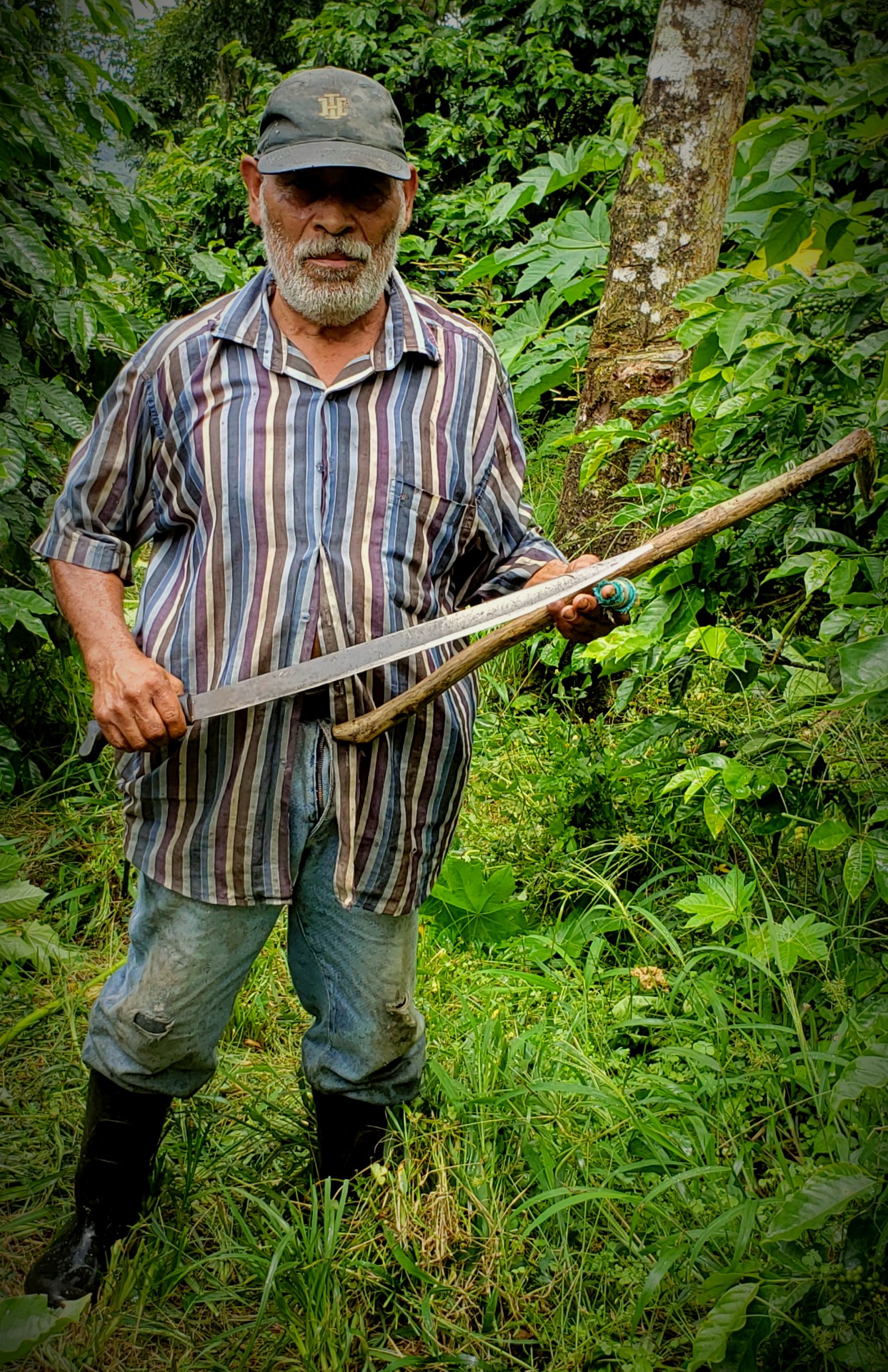
Working the coffee field at the El Recreo Coffee Estate in Jinotega, Nicaragua.
Then 365 days are over, and it all starts again. And hopefully the rains and sun will all come at the right time.
There are a few other variables that I am sure I have missed but you get the idea. All of the above costs money to do.
The Math of Price
And I am going to make the assumption that the farmer and their family, have a decent home, clothes, enough food, access to health care, and schooling for their children. All basic needs that any of us would expect.
So, if the farmer is unable to get a proper ‘Gate Price’ for their coffee, something has to give. I am here to tell you that “give” comes in the form of a negative impact on our environment, a negative impact on people, and a negative impact on the communities that they live in.
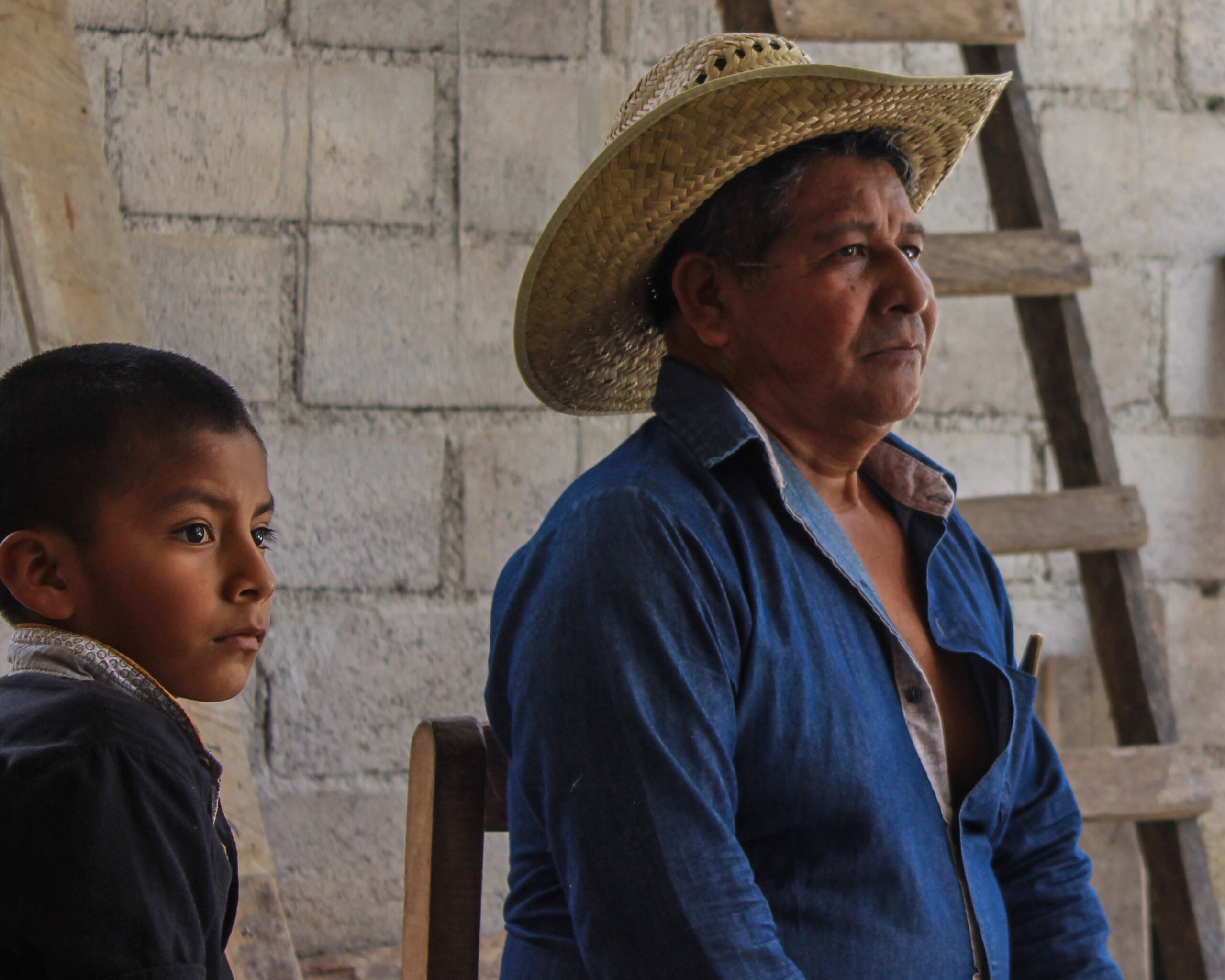
Don Pascual Hernandez, a small coffee producer in a remote village in Chiapas, Mexico, with his grandson.
So, let’s unpack that. Let us say, hypothetically, that the ‘Gate Price’ to support proper farming should be $4.25 per pound. And that the farmer can only get $1.25, based on the supply/demand model of the C-contract. So, where does the value of the $3.00 difference go?
Hidden Cost
That $3.00 becomes a ‘hidden cost’ that always catches up with all of us. We can look around in our daily lives and feel it all the time.
For the farmer, not getting that full price means they will have to take shortcuts, and you can’t blame them. On the environmental side, it may mean cheaper, more harmful fertilizers, or no fertilizers. It may mean using herbicides and pesticides to reduce labor. It may mean cutting down trees, all together. Which leads to water and soil pollution, erosion, land temperature increases, and no carbon retention or sequestration.
All of this contributes to pollution, deforestation, compaction and depletion of the soil, and ultimately a contribution to climate change.
Have you tried to breath outside lately? Remember our Earth doesn’t understand borders. It is just one big biosphere, where the balance of elements that have made our world habitable for millions of years is destabilizing. One of the primary causes is the sudden release of carbon that has been trapped in the ground forever. It does not matter where on earth that release is, because our world is interdependent. It affects us all, no matter where we live.
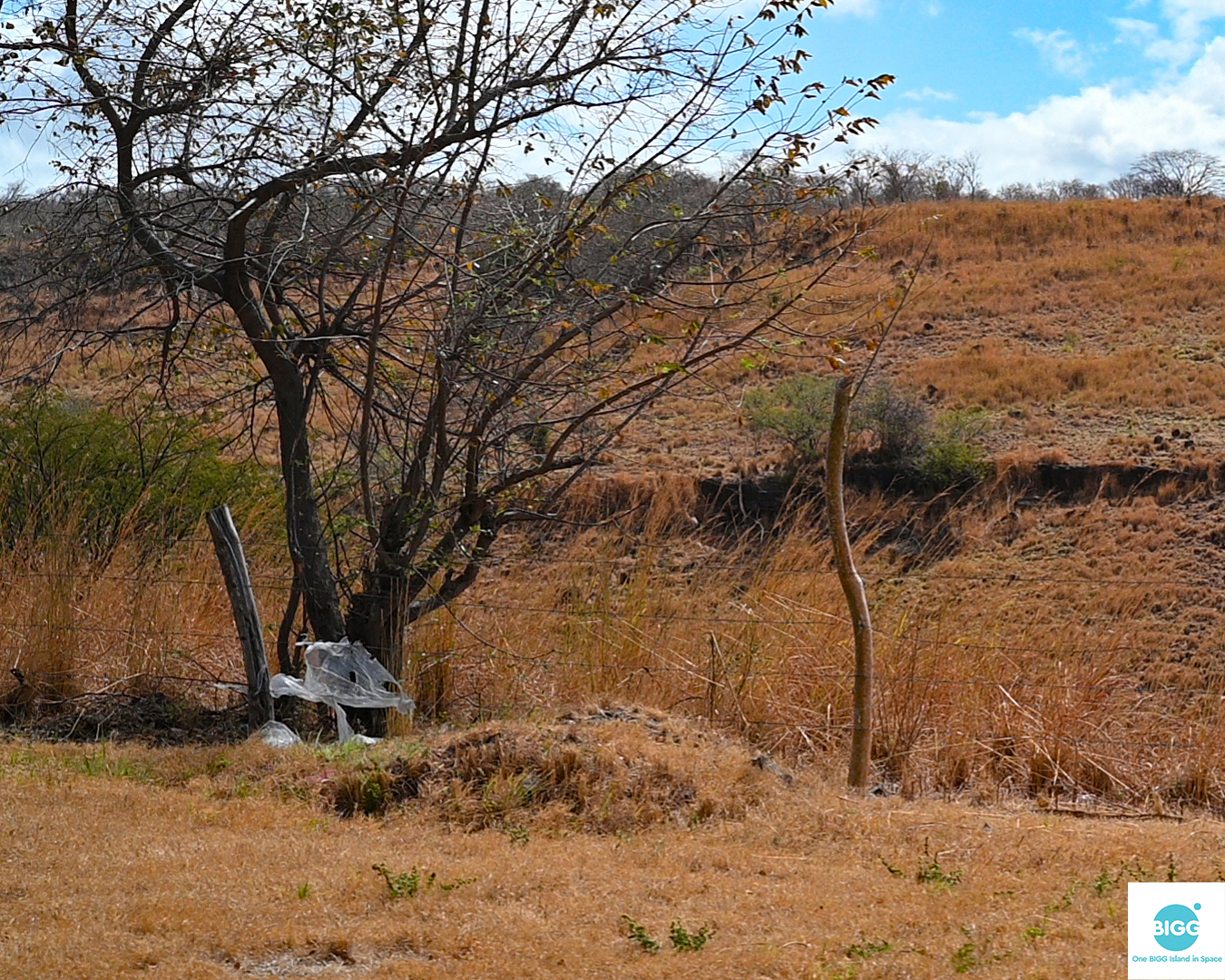
People
The other place that $3.00 hidden cost goes manifests as a negative impact on the farmer’s family. Again, what is the farmer to do? Their kids won’t be able to go to school. They will not be able to maintain good health practices. Potable water will not be available. Even their diets will get worse. Their homes will decay.
From a community perspective they will have to pay below market wages to their workers, or not hire them at all. The water supply will become polluted, temperatures will increase, deforestation for fuel will become rampant, schools will be abandoned, and commerce will dwindle. Crime and petty theft will increase.
Downward Spiral
Because the farmer cannot fertilize, or prune, or tend to and manage the crop as it needs, their coffee yields will spiral down. There will be even less money. And that cycle will feed on itself until the farmer is in such poverty that they will leave their farms, leaving the land and community scarred, abandoned, polluted, and leached of all the vast nutrients that used to be there.
Where do they go? They try to find their way to the coffee consuming countries. Places like the US and Canada, or Europe, or some of the Arab countries. Anywhere they believe that they won’t starve or die. From their perspective, it is pretty reasonable thinking on their part.
But understand that we all absorb this as a cost, eventually. Look at migration patterns. Look at our borders, and how they must be managed and controlled. Legal or otherwise, we can feel the push of people trying to get somewhere where they can live a decent life. These aren’t criminals or thieves. These are simply men and women trying to survive, protect their families, and provide something for the next generation.
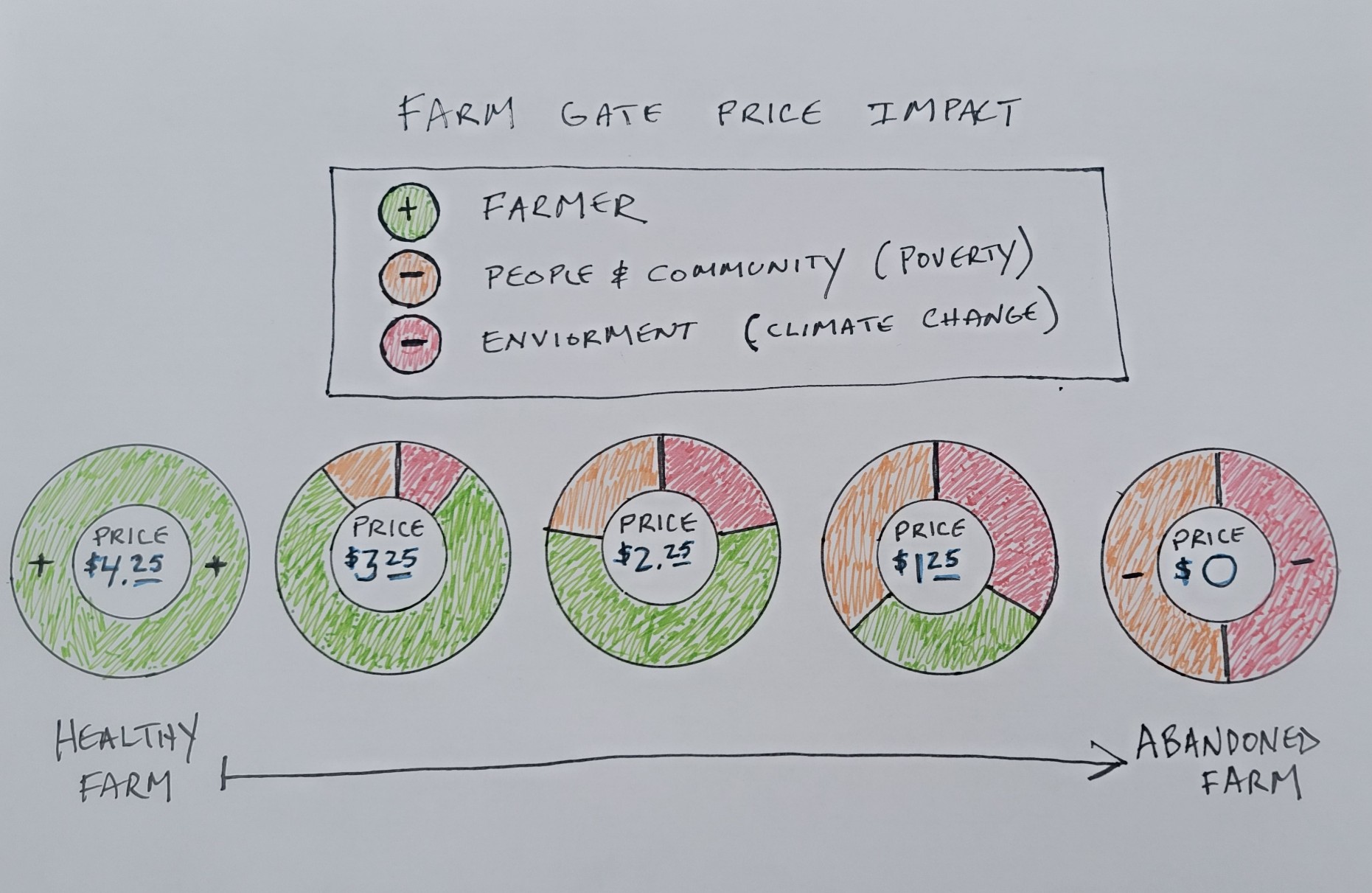
My Conclusion
When we don’t pay the proper price to produce something, we will pay the proper price in the end. But the cost of that price will show up as world poverty and climate change. That’s not something that is coming, that is something that already here.
So, I would like you, as a consumer, to consider what kind of world you are building for you and your children. We are a consumer driven society, so to some degree this is in your hands. When you buy something at the ‘lowest price’, does that price include the hidden costs?
There was probably a time (not too long ago) when we could look at those hidden costs and shrug them off as somebody else’s problem, in some other place. But that somebody else is now you. And those problems are real, current, and knocking on your door.
If you choose a world where you pay attention to the proper price for the products you consume or buy from companies that you trust are doing so on your behalf, I guarantee you that you will be moving in the right direction.
You will contribute to a world where people can breathe easier, and where people from other far away countries would prefer to stay and prosper in the country that they love.
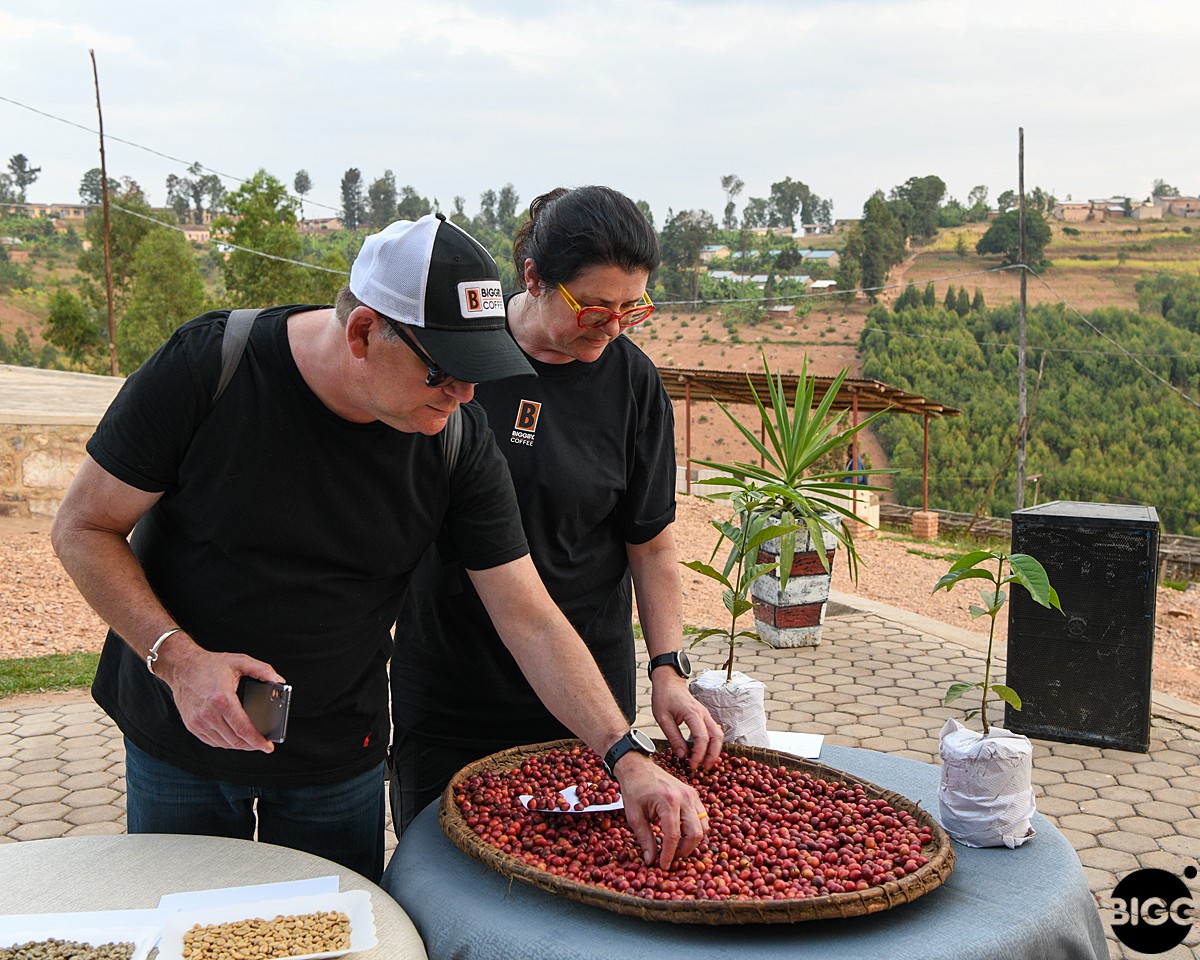
Bob and Michelle Fish visiting a coffee washing station in Rwanda, owned by a collective of small producers.
Epilogue
I come to these thoughts and opinions honestly. My expertise is coffee and I have been in the industry for nearly thirty years. I have spent thousands of hours with coffee farmers, walked their lands, slept in their homes, eaten at their tables. I have known their spouses and children, been to their schools and met with community leaders.
I am (along with my wife Michelle) a firsthand narrator that has been to countless countries in Central and South America, Africa, and Asia. I have the airline miles to prove it!! This perspective didn’t come from some textbook or ideology, this came from being what we call ‘boots on the ground.’ This is real.
My example is coffee because this is something I know and understand. But this could really apply to anything we purchase and consume including other commodities or manufactured goods. This understanding of the ‘price we pay’ for goods and their hidden costs could be just as easily applied domestically as internationally.
I have experienced firsthand the impact of paying less for something than it costs to produce it. Once you see it, you can’t unsee it. Now is the time to become more conscious of our individual impact as a consumer. Although it seems unlikely, you individually can make a difference to the world we live in. Give it a try. 😊
OBIIS
As an organization, our solution is to buy coffee directly from the farmer, eliminating as many people and costs in between us and them.
In turn, we then push the savings down to the producer/famer so that they get an economically sustainable Gate Price.


